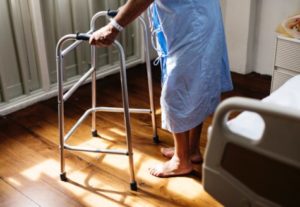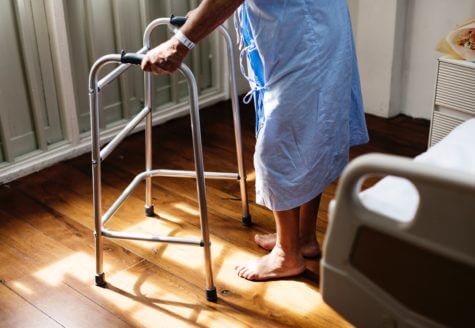SINGAPORE — In a world where more people are living longer, a new study gives hope that frailty in elderly populations can actually be reversed through some simple lifestyle changes.
Researchers at the National University of Singapore had previously seen a strong connection between physical weakness and cognitive declines, hospitalizations, disabilities and earlier deaths. They undertook a four-year study to find out how changes in diet and exercise (both physical and mental) might reverse these trends in seniors.

“When physical frailty and cognitive impairment are present together in the same individual, he or she is more than 20 times as likely to become disabled, hospitalized or die earlier,” explains lead researcher Ng Tze Pin, an associate professor in the school’s Department of Psychological Medicine, in a university release. “With such compelling evidence, if it is possible to reduce or even reverse physical frailty in the elderly, we could greatly improve their quality of life.”
Researchers recruited 250 participants from senior living communities in Singapore. Each participant was 65 years of age or older and showed signs of physical frailty. The authors randomly assigned each person to one of five groups. One group was put on a physical training regimen, another was provided an improved diet, and a third group was assigned to a cognitive training program. The fourth group took on all three lifestyle adjustments, while the fifth group had none, functioning as the control.
Researchers assessed the participants’ levels of frailty before the six-month trial began. The same data was then measured at the halfway point of the trial and again at the end. A final assessment was also taken six months after the trial ended.
The results proved remarkable: Each of the interventions, as well as the combo, produced positive results both physically and mentally. Participants began to walk faster, their muscles became stronger, and they had fewer problems with depression or cognition.
“We found that better nutrition, physical training and mental exercises can reverse frailty, enhance muscle strength and gait speed, reduce depressive symptoms and improve cognitive functioning,” says Ng.
Researchers are excited about what this study indicates: that relatively simple lifestyle changes can strengthen the muscles, bones, minds — and ultimately the lives — of the elderly. Not only would this improve quality of life for seniors, but it would also reduce some of the other problems associated with aging, such as physical disability, hospitalization and early death.
“Our study shows that it is feasible to identify pre-frail and frail older persons in the community and primary care settings and provide them with lifestyle interventions to reverse frailty,” adds Ng.
Based on these results, researchers are working with geriatric and social-service organizations to create a pilot frailty-screening program along with healthy interventions to boost the physical, psychological and cognitive health of seniors.
“The important message from our studies is that frailty is not an inevitable part of aging,” notes Ng. “There is much that older people can do for themselves to avoid becoming frail and disabled, so it is vital that they pay attention to good quality diet and nutrition, engage in physical exercise, and participate in socially and cognitively stimulating activities.”

Comments